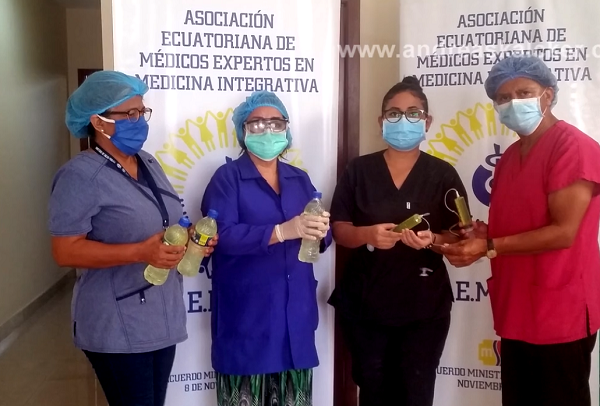
According to the study, orange peels contain an active compound that can help keep your heart healthy and protect against atherosclerosis. Atherosclerosis is a condition characterized by the buildup of fats, cholesterol and other substances (collectively known as plaque) along the walls of the arteries which can block blood flow to the heart.
Heart disease is the number one killer in the U.S.
According to the Centers for Disease Control and Prevention (CDC), heart disease is the leading cause of death among men, women and people of most racial and ethnic groups in America. In fact, data suggests that a person dies of heart disease every 33 seconds. The most common type of heart disease is coronary heart disease (CHD) which is said to kill an estimated 375,476 people every year.
CHD is caused by atherosclerosis, the buildup of plaque inside the lining of the large coronary arteries that supply oxygen-rich blood to the heart. Partial or complete blockage of the coronary arteries deprives the heart of much-needed oxygen, which can lead to a heart attack. Also known as myocardial infarction, a heart attack can destroy part of the heart muscle and, depending on the damage, can be fatal. (Related: A protein in raw milk can help prevent atherosclerosis, reports study.)
Several factors can increase your risk of CHD. While some factors, such as age and genetics, are unavoidable, other risk factors of CHD, such as high blood cholesterol and high blood pressure, are certainly preventable. With healthy lifestyle changes, you can prevent plaque buildup in your arteries that leads to CHD. Here are some lifestyle changes that can help keep your heart and blood vessels healthy:
- Exercise regularly and be physically active
- Get enough good-quality sleep
- Quit smoking and avoid exposure to second-hand smoke
- Manage your stress levels
- Eat a well-balanced diet and avoid highly processed foods
Research shows that being physically active strengthens your heart muscle, improving your heart's ability to pump blood throughout your body. Meanwhile, lack of sleep promotes inflammation -- a risk factor of cardiovascular disease -- which can damage your blood vessels, causing them to thicken and restrict blood flow. People who don't get enough sleep are also more prone to develop high blood pressure.
Similarly, studies show that smoking or inhaling second-hand smoke can cause an instant and long-term rise in blood pressure. Smoking has also been found to damage healthy blood vessels, increase your risk of blood clots and double your risk of stroke (decreased blood flow to the brain). Meanwhile, high levels of the stress hormone cortisol can increase blood pressure, blood cholesterol and triglycerides, blood sugar and blood pressure, all of which are risk factors for heart disease.
An unhealthy diet, especially one that is high in refined carbohydrates and saturated and trans fats, has been linked to atherosclerosis and consequently a higher risk of heart attack and stroke. To maintain a healthy heart and cardiovascular system, experts recommend avoiding fatty and sugary processed foods and eating more fruits, vegetables, healthy protein sources (e.g., lean meats, poultry, nuts, seafood and legumes) and whole grains.
Compound in orange peel found to reduce atherosclerosis risk
Earlier studies have found a connection between heart disease and the commensal bacteria residing in the human gut. One such study published in Frontiers in Endocrinology reported that gut bacteria metabolize dietary choline and carnitine -- nutrients present in animal products -- into trimethylamine N-oxide (TMAO), a compound that inhibits cholesterol metabolism, induces platelet aggregation and blood clotting, and promotes atherosclerosis.
In an effort to find a solution to this, researchers from the University of Florida and the U.S. Department of Agriculture turned to orange peels, which are known for their wealth of bioactive components. They hypothesized that orange peel extracts contain natural chemicals that could prevent the production of TMAO and its precursor, trimethylamine (TMA). (Related: Oranges are waste-free: Every part has unique health benefits.)
To test their hypothesis, the researchers obtained polar and non-polar fractions from orange peels and looked at how they affected TMA and TMAO production in mice and in cell cultures. They also performed chemical analysis of both fractions to identify relevant bioactive components. (Related: Scientists regard sorghum as a potential therapeutic agent against atherosclerosis.)
The researchers found that the polar fraction from orange peels effectively regulated atherosclerosis-related markers and reduced TMA and TMAO in mice plasma and urine. The inhibitory effect of the polar fraction on TMA and TMAO formation was independent of changes in gut microbial composition. While the nonpolar fraction also displayed inhibitory effects, the polar fraction proved to be more effective at suppressing the formation of TMA and TMAO.
The researchers attributed the polar fraction's stronger activity to the presence of a compound called feruloylputrescine. Feruloylputrescine exhibited the highest inhibitory activity against the cntA/B enzyme, which is responsible for producing TMA. In cell cultures, treatment with the polar fraction from orange peels also reduced the expression of flavin-containing monooxygenase 3 (FMO3), the enzyme that converts TMA into TMAO.
These findings show the considerable potential of orange peels in helping prevent heart disease. Yu Wang, one of the study authors, noted that their study highlights the unrecognized potential of feruloylputrescine and suggests that "orange peels, often discarded as waste in the citrus industry, can be repurposed into valuable health-promoting ingredients, such as diet supplements or food ingredients."
How to incorporate orange peels into your diet
Orange peels are an incredibly versatile ingredient that you can easily add to a variety of recipes. In addition to health-supporting phytonutrients, orange peels are a good source of provitamin A (precursors of vitamin A), vitamin B1 (thiamine), vitamin B2 (riboflavin), vitamin B6 (pyridoxine), vitamin B9 (folate), vitamin C, calcium and dietary fiber.
Orange peels can be eaten on their own (candied), added to drinks and desserts or used to flavor dishes. Here are some other ways you can use orange peels in the kitchen:
- Use orange zest for baking cookies or cakes
- Sprinkle orange zest onto salads, oatmeal, etc.
- Mix orange zest with coarse sea salt to make orange salt (you can use this to season vegetables, rice, soups, etc.)
- Mince and dry orange peels and combine with tea leaves and spices
- Add orange peels to roasted dishes or use them to stuff chicken
- Use orange peels to make marmalade
- Steep orange peels in vodka for several days to make orange-cello
The flesh of oranges is not the only useful part of this citrus fruit. Orange peels are also nutritious and offer incredible health benefits, especially for the heart. Learn more about the superfood qualities of oranges at Fruits.news.
Watch this video to learn about the health benefits of oranges.
This video is from the Groovy Bee channel on Brighteon.com.
More related stories:
Orange juice was found to be the most effective at preventing kidney stones.
Study: Vitamin D supplementation found to reduce the risk of heart attack.
Freshly squeezed: Spanish city tapping leftover oranges for its electricity supply.
Nattokinase: A superfood enzyme for a healthier heart.
Sources include:
Please contact us for more information.






















